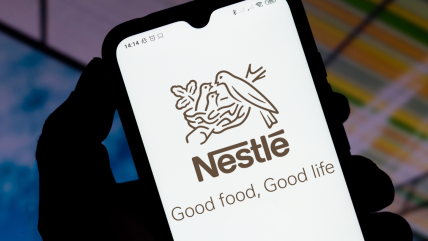
A proposal to increase the quantity of healthier products in Nestlé’s portfolio has been rejected by a majority of the company’s shareholders at its AGM.
Some 88% voted against the motion, while 11% were in favour and 1% abstained.

Discover B2B Marketing That Performs
Combine business intelligence and editorial excellence to reach engaged professionals across 36 leading media platforms.
The vote took place at the KitKat owner’s AGM, which was held yesterday (18 April) at its Swiss headquarters.
The resolution, filed by UK NGO and Nestlé shareholder ShareAction in March called on the Cerelac baby food maker “to dramatically improve its impact on people’s health”.
ShareAction issued the proposal alongside Nestlé shareholders Legal and General Investment Management, Candriam, La Française Asset Management, VGZ and Guys and St Thomas’s Foundation, a UK charity.
Nestlé had issued a statement prior to the vote disagreeing with the resolution. It argued that the proposal would be “deliberately limiting growth in specific areas of our portfolio” and would “restrict” the group’s “strategic freedom”.

US Tariffs are shifting - will you react or anticipate?
Don’t let policy changes catch you off guard. Stay proactive with real-time data and expert analysis.
By GlobalDataReferring to the company’s “more indulgent” products at the AGM, Nestlé CEO Mark Schneider said the business was still “committed to this part of our portfolio, but with an eye towards responsible consumption”.
The result follows on from a study emerging earlier this week that found Nestlé has been adding sugar and honey to some cereals and baby formula products sold in poorer countries.
Zurich-headquartered NGO Public Eye and International Baby Food Action Network led the investigation, carrying out an assessment on 150 Nestlé products sold in “lower-income” regions.
Commenting on the rejection of the vote, Simon Rawson, deputy chief executive of ShareAction, said: “While the vote we achieved today may be less than we wanted, the direction of travel is clear. Investors and consumers are recognising the importance of addressing the business risks and public health impacts of an industry that is heavily reliant on the sales of unhealthy food. They have growing expectations not only from Nestlé but from all food manufacturers.
“Left unaddressed, the public health trends that spurred this resolution will only worsen; consequently we expect investor support for such resolutions at food companies to increase.
“We look forward to continued engagement with Nestlé and hope to see progress towards the health goals the company itself claims.”
According to Rawson, part of the reason the resolution was rejected was down to “the fact that shareholder proposals in Switzerland require amendment to companies’ articles of association deterred many from voting in support”.
Such regulations, he added, “need reform to create a route for constructive shareholder proposals… There is investor appetite for it”.





